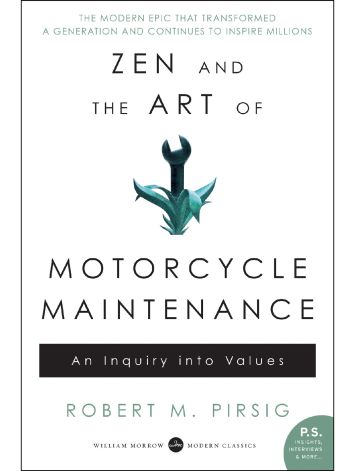
---
> I think it’s about time to return to the rebuilding of this American resource—individual worth. There are political reactionaries who’ve been saying something close to this for years. I’m not one of them, but to the extent they’re talking about real individual worth and not just an excuse for giving more money to the rich, they’re right.
---
> Reason and Quality had become separated and in conflict with each other and Quality had been forced under and reason made supreme somewhere back then.
- _Tags_: `c2`
---
> Reason was to be subordinate, logically, to Quality, and he was sure he would find the cause of its not being so back among the ancient Greeks, whose mythos had endowed our culture with the tendency underlying all the evil of our technology, the tendency to do what is “reasonable” even when it isn’t any good.
---
> I think it was Coleridge who said everyone is either a Platonist or an Aristotelian. People who can’t stand Aristotle’s endless specificity of detail are natural lovers of Plato’s soaring generalities. People who can’t stand the eternal lofty idealism of Plato welcome the down-to-earth facts of Aristotle.
---
> Phaedrus’ mind races on and on and then on further, seeing now at last a kind of evil thing, an evil deeply entrenched in himself, which pretends to try to understand love and beauty and truth and wisdom but whose real purpose is never to understand them, whose real purpose is always to usurp them and enthrone itself. Dialectic—the usurper. That is what he sees.
---
> What was Plato’s real purpose in this? Phaedrus reads further and further into pre-Socratic Greek thought to find out, and eventually comes to the view that Plato’s hatred of the rhetoricians was part of a much larger struggle in which the reality of the Good, represented by the Sophists, and the reality of the True, represented by the dialecticians, were engaged in a huge struggle for the future mind of man. Truth won, the Good lost, and that is why today we have so little difficulty accepting the reality of truth and so much difficulty accepting the reality of Quality, even though there is no more agreement in one area than in the other.
---
> Plato hadn’t tried to destroy aretê. He had encapsulated it; made a permanent, fixed Idea out of it; had converted it to a rigid, immobile Immortal Truth. He made aretê the Good, the highest form, the highest Idea of all. It was subordinate only to Truth itself, in a synthesis of all that had gone before.
---